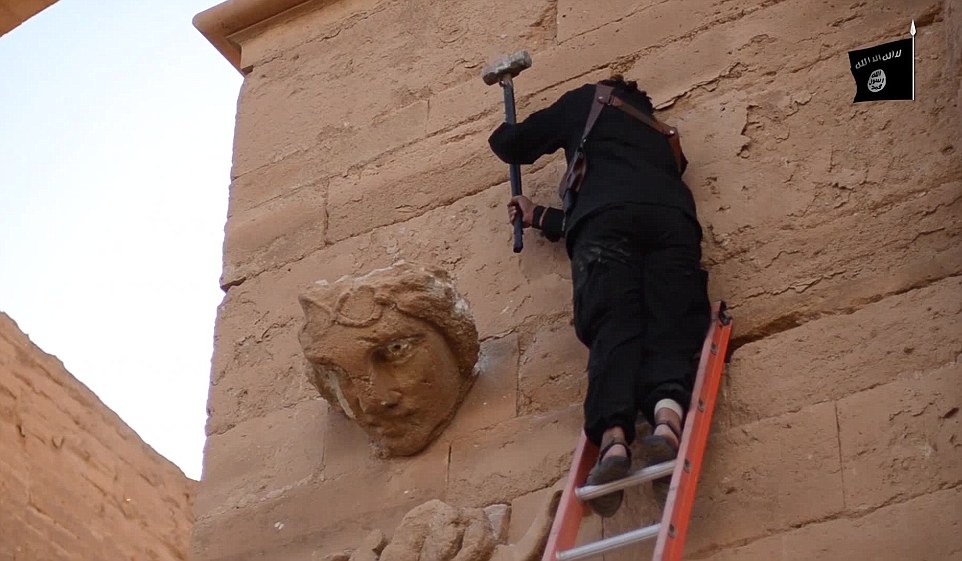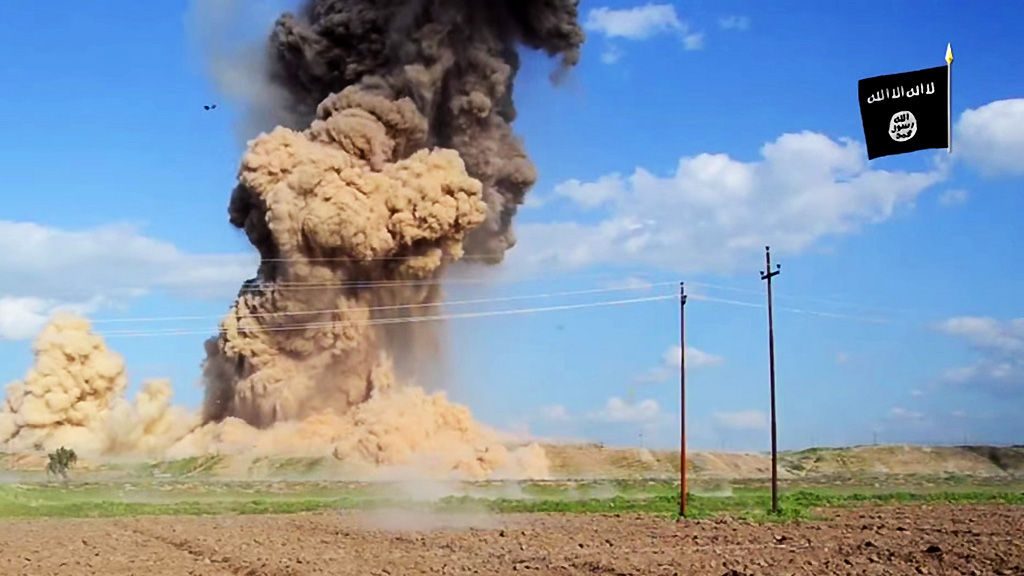“I’m confident that there will be trials for the destruction we’ve seen in the Middle East, and that the videos and photographs produced by [ISIS] to brag about their destruction will one day reappear in court as evidence against them.” – Erin Thompson, a professor of art crime at the City University of New York.

PHOTO: dailymail.co.uk
On November 25th of this year, Iraqi troops recaptured Nimrud, the site of an ancient Assyrian city from ISIS. The city was all but bulldozed by the radical group, and hundreds of historical artifacts and cultural heritage sites were destroyed, including the famous Tomb of Jonah, which was important to both Muslims and Christians, and Mar Benham (A Christian monastery). “They violated the ancient city of Nimrud and bulldozed its ancient ruins,” the Iraqi Ministry of Tourism and Antiquities said.
Today, combined Iraqi-Kurdish forces are battling their way into the last major Iraqi city held by ISIS: Mosul. A few ISIS soldiers in Mosul have already surrendered to Kurdish forces.
As the fight against ISIS continues, global authorities are deciding what kinds of charges will be pressed against the militant group in international court. International law forbids the destruction of heritage sites. While it’s not known whether or not any of the soldiers who have surrendered so far participated in these acts, they could face charges for war crimes. Irina Bokova, director-general of the United Nations Educational, Scientific, and Cultural Organization (UNESCO), said in a statement released on November 25th: “These destructions may amount to a war crime, and UNESCO will do everything in its power to document the damage so that these attacks do not go unpunished.”
ISIS has broadcasted videos bragging about their exploits, including a video of ISIS militants using sledgehammers to destroy over a hundred original pieces of antiquity in the Mosul Museum. Many of the pieces documented the height of the Assyrian Empire. While steps are being taken to protect other important cultural heritage sites in Iraq, what has been destroyed is a tragic loss of cultural history in Iraq, a loss that is felt throughout the world.
“Our ministry condemns these criminal acts. Letting these lost gangs go without punishment will encourage them to destroy humanity’s civilization, the Mesopotamian civilization, inflicting irreversible priceless damages and losses.” – Iraqi Ministry of Antiquities.
ISIS will regret broadcasting those videos. They can be used as evidence in international court to press charges for war crimes. As ISIS’ time is drawing to a close, most of the court cases brought against them will involve violent crimes and genocide, as they should. However, there will, without a doubt, be some justice for Iraq’s cultural history, too.


